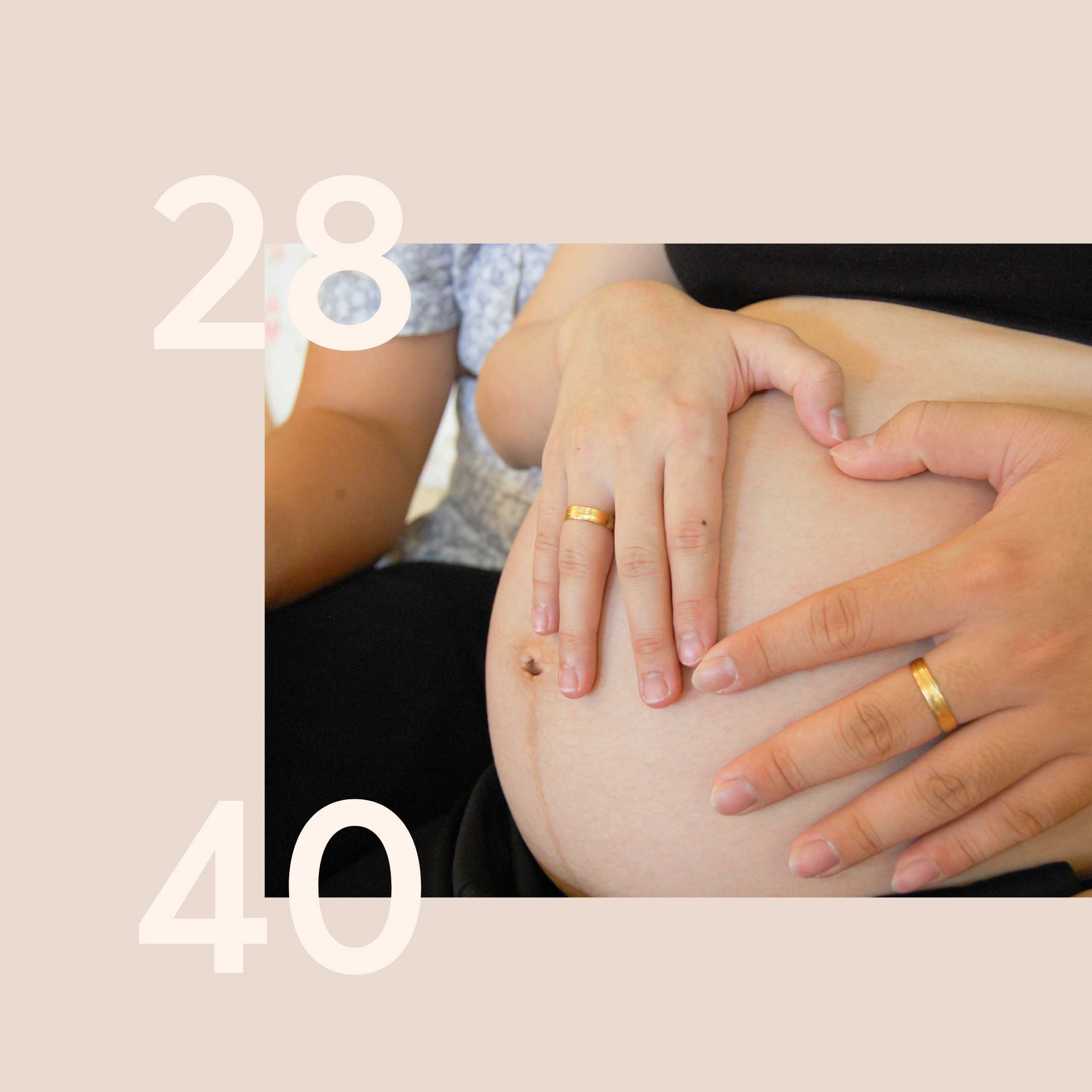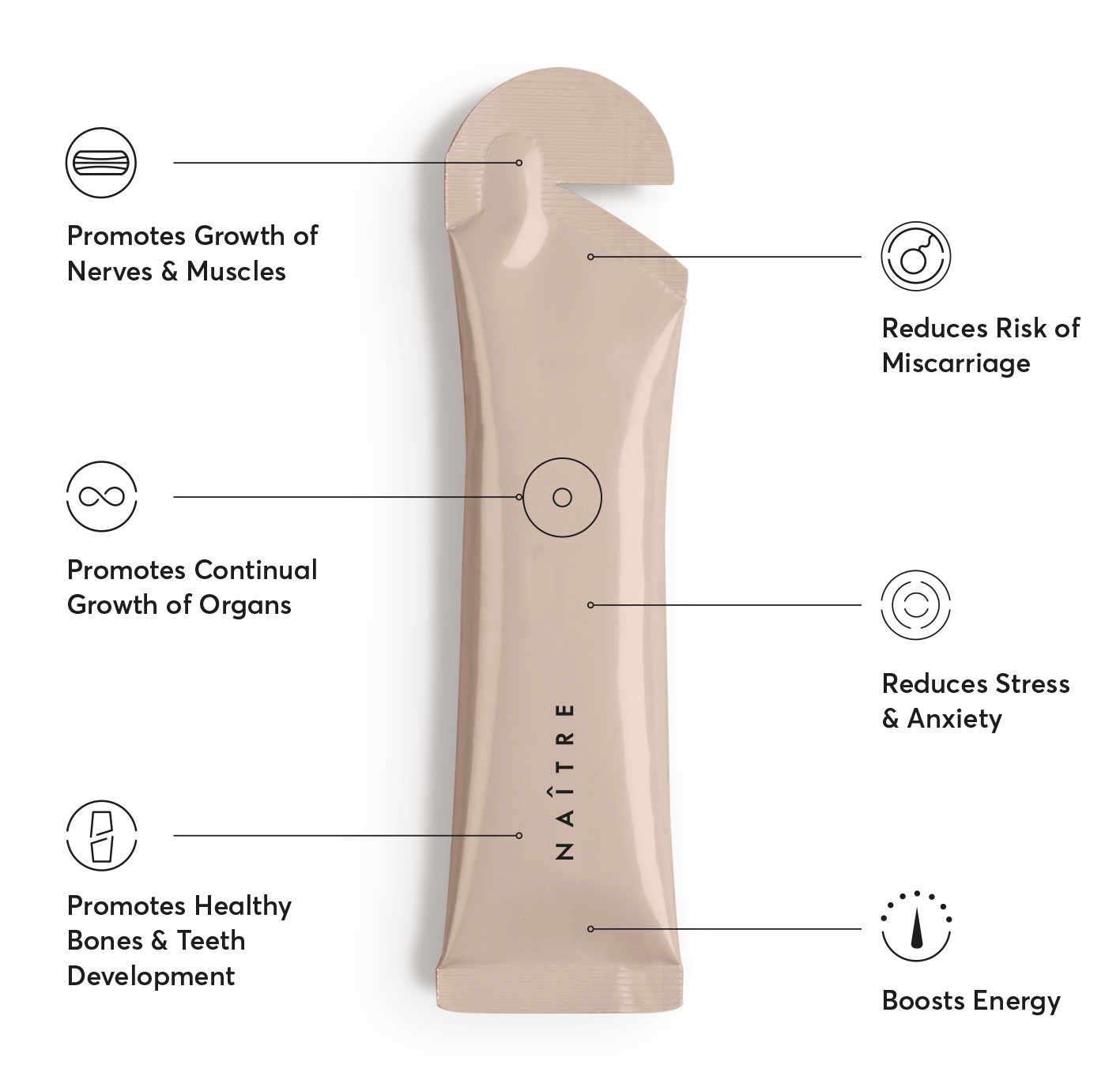Pregnancy is a time of immense change and development for both the mother and the growing
foetus. It is important to ensure that the mother receives proper nutrition, including essential vitamins and minerals. B vitamins are a group of vitamins that are essential for various functions in the body, especially during pregnancy.
Let’s examine the importance of B vitamins during pregnancy, which B vitamins are the most important, and how they support a healthy pregnancy for both the mother and the baby.
What are B Vitamins?
B vitamins are a group of water-soluble vitamins that play a vital role in the metabolism of the body. There are eight B vitamins, including:
- thiamine (B1)
- riboflavin (B2)
- niacin (B3)
- pantothenic acid (B5)
- pyridoxine (B6)
- biotin (B7)
- folate (B9)
- cobalamin (B12)
B vitamins are important for maintaining healthy skin, eyes, liver, and nervous system. They also play a crucial role in energy production and red blood cell formation. Because the body doesn't store them, they need to be replenished regularly through diet or supplements.
B Vitamins during Pregnancy
During pregnancy, the nutritional requirements of the body increase significantly to support the growth and development of the foetus. B vitamins are particularly important during pregnancy, as they play a crucial role in the development of the baby's brain and nervous system. They also help maintain the health of the mother by supporting the immune system and aiding in the production of red blood cells.
Some of the most important B vitamins during pregnancy and their roles:
Folate (B9):
Folate is perhaps the most important B vitamin during pregnancy. It plays a critical role in the formation of the baby's neural tube, which later develops into the brain and spinal cord. Folate deficiency during pregnancy can lead to serious birth defects, such as spina bifida. Folate supplementation has been shown to reduce the incidence of NTDs significantly, the NHS recommends that pregnant women take at least 400mcg of folic acid daily. Besides preventing NTDs, folate is also essential for creating new DNA, proteins, and red blood cells.
Vitamin B6:
Vitamin B6 is important for several metabolic processes and the development of the baby's brain and nervous system. It also helps alleviate morning sickness, a common symptom during pregnancy. Vitamin B6 deficiency during pregnancy can cause anaemia, low birth weight, and impaired foetal growth.
Vitamin B12:
Vitamin B12 is essential for maintaining the health of the nervous system and the brain development and growth of a
foetus.
Studies show that vitamin B12 deficiency is associated with adverse maternal and neonatal outcomes, including developmental anomalies, miscarriage, preeclampsia, and low birth weight. A 2016 a
study by the University of Warwick Medical School in the UK, shows that low Vitamin B12 levels during pregnancy may increase the risk of type 2 diabetes and other metabolic disorders in offspring.
Vitamin B12 is naturally found in animal products, including fish, meat, poultry, eggs, milk, and dairy products. It is recommended that vegans and vegetarians supplement vitamin B12 during both pregnancy and lactation to ensure that sufficient B12 is transferred to the foetus and infant.
Naitre’s Pregnancy Support Formula uses a biologically-active form called Methylcobalamin (the same kind found in food and our bodies), as opposed to the commonly used cyanocobalamin.
Thiamine (B1):
Thiamine is important for the metabolism of carbohydrates and the production of energy. Thiamine deficiency during pregnancy can cause beriberi, a rare but serious condition that can affect the heart and nervous system.
Vitamin B Complex
All of the B vitamins are important for overall health and wellness, and this is especially true during pregnancy. Taking a prenatal vitamin that includes the full spectrum of B vitamins can ensure that you are getting the recommended daily intake of each nutrient.
In addition to the specific benefits of each individual B vitamin, the B vitamins work together synergistically to support overall health. For example, vitamins B6 and B12 are necessary for the body to properly absorb and utilise folate. Without enough B6 and B12, the body may not be able to make use of the folate that you consume, even if you are getting enough of it.
Final Thoughts
B vitamins are essential for a healthy pregnancy for both the mother and the baby. It is recommended that pregnant women consume a well-balanced diet that includes a variety of foods rich in B vitamins. It is also important for pregnant women to take a high-quality prenatal vitamin that includes the full spectrum of B vitamins to ensure proper nutrition for themselves and their growing baby. While some B vitamins, like folate, vitamin B6, vitamin B12, and thiamine are particularly important for pregnant women, all of the B vitamins work together to support overall health and wellness.








